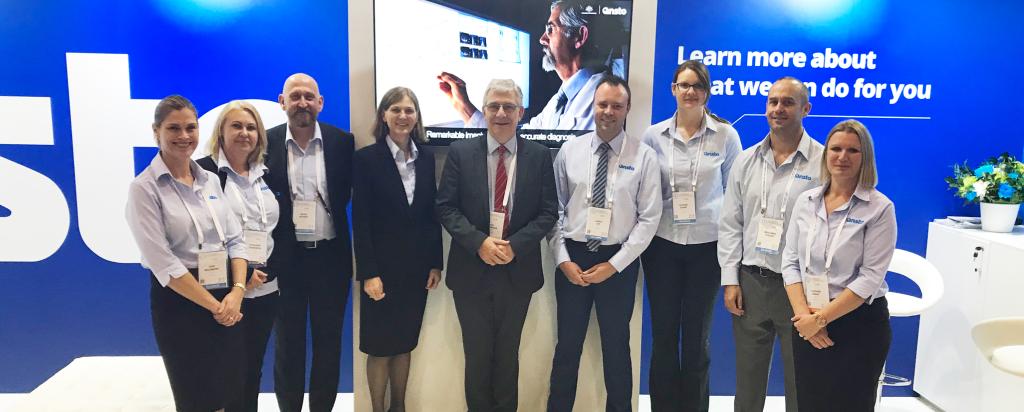
ANSTO was closely associated with the 12th Congress of World Federation of Nuclear Medicine and Biology because of our diverse contribution as a member of the nuclear medicine community,” said CEO Adi Paterson.
“It is a watershed moment for nuclear medicine in general with the development of advanced diagnostic imaging technologies and therapeutic techniques and for ANSTO as an applied research centre and supplier of nuclear medicine products and services.”
Dr Paterson noted the significant role that President of the World Federation of Nuclear Medicine and Biology and ANSTO Board Member Prof Andrew Scott has made in advancing this agenda.
A broad cross section of more than 2000 professionals from the medical and scientific community attended the global event held in Melbourne 20-24 April 2018.
Prior to the start of the Congress, delegates had the opportunity to tour ANSTO’s state-of-the art OPAL multipurpose reactor, which produces the most commonly used nuclear diagnostic agent, molybdenum-99 (the parent isotope of technetium-99m), and the Australian Synchrotron, which operates the Imaging and Medical beamline with the world’s widest synchrotron X-ray beam.
Dr Paterson said it was critically important that we continue to harness the huge potential of nuclear and accelerator technologies in research, development and production to benefit human health.
“The latest nuclear medicines represent exciting advances because they can combine diagnosis, disease progression monitoring and treatment,” Dr Paterson said.
“ANSTO currently supports a number of clinical trials, which are testing promising new treatments for prostate and pancreatic cancer, neuroendocrine tumours and childhood cancers.
“Although we are not a clinical centre, ANSTO is proud to be contribute and working collaboratively with our partners to deliver better health outcomes for Australians and people around the world.”
Media enquiries, please email media@ansto.gov.au